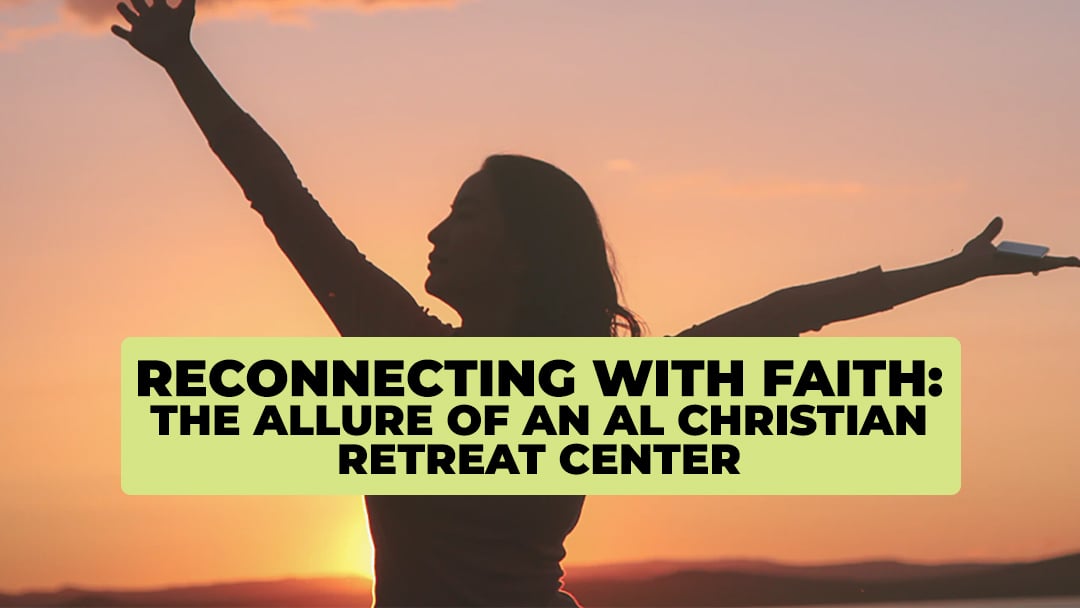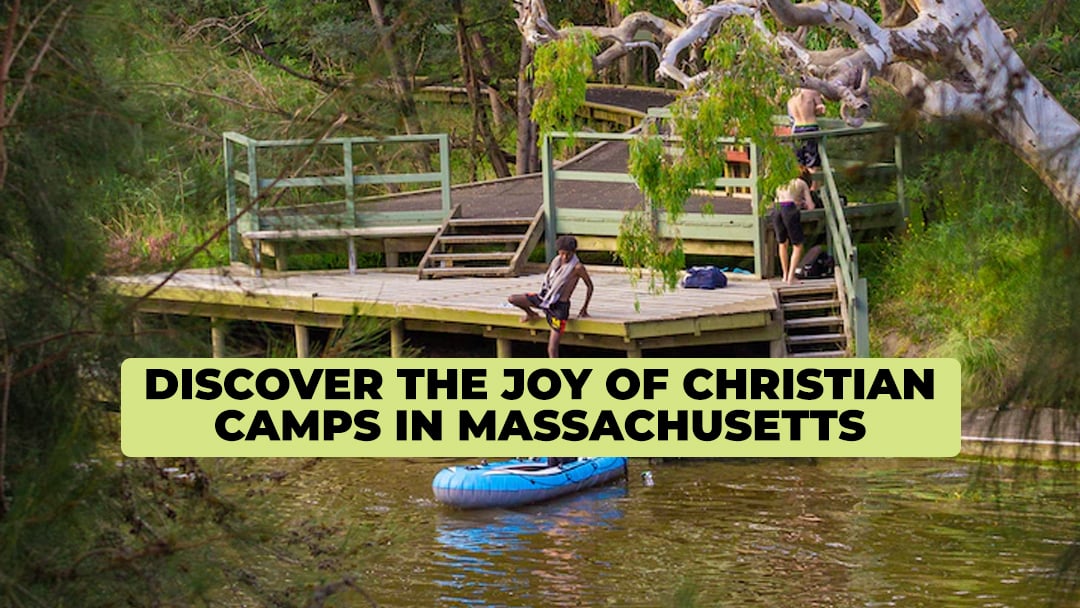Selecting the ideal youth Christian camp is a pivotal decision for parents and guardians seeking to enrich the lives of their youngsters. These camps offer more than just a break from the daily grind; they are transformative experiences that blend adventure, community, and spiritual growth. In a world where young minds are constantly bombarded with distractions and pressures, Christian camps provide a unique sanctuary for exploration, learning, and deepening of faith.
Youth Christian camps come in various forms, each tailored to different interests, ages, and spiritual goals. Whether it’s through adventurous outdoor activities, creative arts, community service, or reflective retreats, these camps aim to nurture not only the physical and intellectual aspects of young individuals but also their spiritual wellbeing. In these settings, campers are encouraged to develop their relationship with God, understand their faith more deeply, and create lasting friendships with peers who share similar values.
But how does one choose the right camp among the myriad of options available? This decision is crucial as it can significantly impact a child’s spiritual journey and personal development. The choice should align with the camper’s interests, provide a safe and nurturing environment, and foster an atmosphere where faith can flourish.
In the following sections, we will delve into the key aspects to consider when selecting a youth Christian camp, ensuring that your choice aligns perfectly with the needs and aspirations of your young ones.
Understanding Different Types of Christian Camps
When it comes to selecting a youth Christian camp, one size does not fit all. Each camp offers a unique environment and focuses on different aspects of spiritual and personal growth. Understanding the various types of Christian camps available is crucial in making an informed decision that aligns with your child’s interests and developmental needs. Here are some common types of Christian camps you might encounter:
Adventure Camps
These camps are perfect for the energetic and adventurous youth. They typically offer a wide range of outdoor activities like hiking, rock climbing, canoeing, and zip-lining. While these activities are thrilling, they also provide valuable lessons in teamwork, perseverance, and facing challenges with faith.
Retreat Camps
Retreat camps offer a more introspective and calm environment. These camps are ideal for youths who seek a peaceful setting for spiritual reflection and connection with God. Activities may include prayer sessions, Bible studies, and workshops focused on personal and spiritual growth.
Mission-Focused Camps
For those passionate about community service and outreach, mission-focused camps provide an excellent opportunity. These camps involve participating in local or even international mission projects, teaching values like compassion, empathy, and the importance of making a positive impact in the world.
Arts and Performance Camps
These camps cater to youths with a flair for the creative arts – be it music, drama, dance, or visual arts. Such camps often combine artistic development with spiritual lessons, allowing campers to express their faith through their creative talents.
Sports Camps
Christian sports camps are great for young athletes or those who love being active. These camps focus on various sports, from basketball to soccer, while incorporating Christian values like teamwork, sportsmanship, and discipline. They provide a platform for youths to develop their athletic skills in an environment that also nurtures their spiritual growth.
Leadership Camps
These camps are designed to cultivate leadership skills in young individuals. Through various team-based activities, workshops, and mentorship programs, campers are encouraged to develop qualities like responsibility, decision-making, and integrity, all within a Christian context.
Science and Technology Camps
For the inquisitive minds interested in science and technology, there are camps that blend these fields with Christian learning. These camps can include activities like robotics, environmental studies, and astronomy, all while exploring the relationship between faith and science.
Special Needs Camps
These camps are tailored to accommodate youth with specific physical, emotional, or developmental needs. They offer a supportive and inclusive environment where every camper can participate fully in activities, learn about God’s love, and grow in their faith.
The Role of Faith in Christian Camps
At the heart of every youth Christian camp is the integration of faith into daily activities and experiences. These camps are not just about having fun or learning new skills; they are about nurturing a deeper understanding and connection with Christian values and teachings. This section explores how faith plays a pivotal role in shaping the camp experience and the life of each camper.
- Faith-Based Learning and Activities: Christian camps incorporate faith in various aspects of their programming. This could be through daily devotionals, worship services, Bible studies, and prayer sessions. These activities are designed to engage campers in a meaningful exploration of their faith, encouraging them to ask questions, seek answers, and grow spiritually.
- Living Out Christian Values: Beyond structured religious activities, Christian camps emphasize living out Christian values in everyday interactions and activities. This includes practicing kindness, patience, forgiveness, and love in the way campers interact with each other and with staff. It’s about creating a community that reflects Christ’s teachings.
- Spiritual Mentorship: Many Christian camps have staff members and counselors who are not just activity leaders but also spiritual mentors. These individuals play a crucial role in guiding campers through their spiritual journey, offering support, wisdom, and encouragement. They are key in creating a safe and nurturing environment where young people can openly discuss their faith and challenges.
- Building a Faith Community: Christian camps offer a unique opportunity for campers to be part of a community that shares similar beliefs and values. This sense of community is vital in fostering a supportive environment where campers can express their faith freely and build lasting friendships with peers who encourage and strengthen their spiritual walk.
- Personal Reflection and Growth: In the midst of nature, away from the distractions of everyday life, Christian camps provide a serene setting for personal reflection and growth. Campers have the chance to contemplate their personal beliefs, their relationship with God, and how they can live out their faith in their daily lives.
- Integrating Faith and Fun: A key aspect of Christian camps is the seamless integration of faith and fun. Camp activities, whether they are adventurous outdoor pursuits or creative arts, are often tied back to spiritual lessons or biblical principles. This approach helps campers understand that faith is not just confined to church or religious settings, but is a vibrant and integral part of everyday life.
- Service and Compassion: Many Christian camps also include components of service, teaching campers the value of helping others and showing compassion. These activities, whether local community service projects or broader mission work, instill a sense of responsibility and a desire to make a positive impact in the world, guided by Christian principles.
- Encouraging Questions and Exploration: Christian camps are not just about imparting a set of beliefs but also about encouraging young people to explore, question, and discover their faith. Camps provide a safe space for this exploration, where campers can engage in discussions and learning experiences that deepen their understanding and commitment to their faith journey.
The role of faith in Christian camps is multifaceted. It encompasses teaching, mentorship, community building, personal growth, and integrating faith into every aspect of the camp experience. These elements work together to create an environment where young individuals can develop a stronger, more personal faith that guides them long after the camp concludes.
Location and Setting
- Geographical Location: Christian camps are located in various geographical settings – from serene lakesides and lush forests to mountainous regions and even urban centers. The choice of location can affect the type of activities offered and the overall feel of the camp. For instance, a camp in the mountains may offer hiking and rock climbing, while a lakeside camp might focus on water-based activities.
- Proximity to Home: Consider how far you are willing to travel for the camp. While some parents prefer a camp close to home for ease of access and familiarity, others might opt for a camp further away to give their child a sense of adventure and independence.
- Natural Environment and Outdoor Opportunities: The natural environment plays a significant role in the camp experience. A camp set in a natural, scenic environment can provide campers with a sense of tranquility and a unique opportunity to connect with God’s creation. Activities like star-gazing, nature walks, and campfires can be more meaningful in such settings.
- Safety and Accessibility: The safety of the camp location is paramount. Ensure the camp is located in a safe area and has appropriate safety measures for any natural hazards. Additionally, consider the accessibility of the camp, especially if there are any specific travel requirements or medical needs to be considered.
- Facilities and Accommodations: The facilities provided by the camp are also crucial. This includes sleeping arrangements, dining facilities, recreational areas, and spaces for worship and reflection. The quality and comfort of these facilities can significantly impact the camp experience.
- Impact of the Setting on the Spiritual Experience: The setting of a camp can enhance the spiritual experience. For instance, a camp in a quiet, secluded area might offer a more introspective experience, suitable for personal reflection and prayer. In contrast, a camp in a vibrant, bustling area might offer more opportunities for community outreach and service.
- Cultural and Regional Differences: If considering a camp in a different cultural or regional setting, think about the unique experiences and perspectives it can offer. Such camps can provide an enriching experience that broadens a young person’s understanding of different communities and ways of practicing faith.
Age and Gender Considerations
- Age-Appropriate Activities and Programs: Different age groups have different needs and capabilities. It’s essential to select a camp that offers activities and programs tailored to your child’s age group. Younger children might enjoy camps with a variety of simple, fun activities that also incorporate basic biblical lessons. Older campers may benefit more from camps that offer deeper spiritual engagement, challenging activities, and opportunities for leadership development.
- Consideration of Developmental Stages: Children and teenagers are at various developmental stages. A camp that is cognizant of these stages can provide a more impactful and meaningful experience. For example, camps for adolescents might focus more on identity formation, social relationships, and exploring faith in a more questioning and personal way.
- Gender-Specific Camps: Some Christian camps are gender-specific, offering programs exclusively for boys or girls. These camps can provide a space where campers feel more comfortable exploring certain topics and activities. They can also focus on issues and developmental themes specific to each gender.
- Co-ed Camps and Interaction: Co-ed camps offer an environment where boys and girls can interact and learn together. In these settings, it’s important that the camp maintains a healthy, respectful atmosphere and provides appropriate supervision. Co-ed camps can be beneficial for teaching young people about mutual respect and cooperation between genders.
- Counselor to Camper Ratio and Age Match: The counselor-to-camper ratio is particularly important, ensuring that each child receives adequate attention and care. Additionally, having counselors who are close in age to the older campers, yet mature and well-trained, can enhance the camp experience by providing relatable role models.
- Safety and Comfort Concerns: Parents should consider how comfortable their child would be in a co-ed or gender-specific setting, especially in terms of accommodations and bathroom facilities. Ensuring that the camp has policies and structures in place to make all campers feel safe and respected is vital.
- Fostering Independence and Confidence: The right camp environment can play a significant role in fostering independence and confidence in campers. For younger children, a nurturing, closely supervised setting is ideal. For teenagers, camps that offer more autonomy and leadership opportunities can be more beneficial.
- Sibling Considerations: If you are sending siblings to camp, consider how their experience might differ based on their age and gender. Some camps offer sibling discounts and may have programs that allow brothers and sisters to have some shared experiences, while also participating in age and gender-appropriate activities.
Camp Safety and Staff Credentials
Ensuring the safety of campers and the qualifications of the staff is paramount when choosing a youth Christian camp. A safe environment and a well-trained, trustworthy staff are essential for a positive and enriching camp experience. Here are key aspects to consider regarding camp safety and staff credentials:
- Accreditation and Safety Standards: Check if the camp is accredited by a recognized organization, such as the American Camp Association (ACA). Accreditation ensures that the camp meets industry-recognized standards for health, safety, and program quality.
- Background Checks and Staff Training: Inquire about the camp’s policies for staff hiring. This should include background checks for all staff members, including counselors, to ensure they have a clean record. Additionally, staff should be adequately trained in areas such as first aid, emergency procedures, child development, and conflict resolution.
- Camper-to-Staff Ratio: A low camper-to-staff ratio is crucial for individual attention and supervision. This ratio can vary depending on the age of the campers and the type of activities offered. A good ratio ensures that each camper receives the necessary supervision and support.
- Emergency Preparedness and Response: The camp should have a clear, well-practiced emergency response plan. This includes procedures for handling medical emergencies, natural disasters, and other unexpected situations. Ask about the availability of medical staff on-site and the proximity to the nearest hospital or medical facility.
- Facility Safety and Maintenance: Evaluate the physical condition of the camp facilities. Safe, well-maintained facilities are critical for preventing accidents and injuries. This includes sleeping quarters, dining areas, activity spaces, and any equipment used for camp activities.
- Healthcare and Medication Management: If your child requires medication or has specific health needs, check how the camp manages healthcare and medication. There should be a system in place for storing, administering, and monitoring medication, along with trained healthcare professionals to manage any health issues.
- Behavioral Policies and Bullying Prevention: Understand the camp’s policies regarding behavior and discipline. A good Christian camp should have a zero-tolerance policy towards bullying and inappropriate behavior, with clear guidelines and procedures for addressing such issues.
- Spiritual Guidance and Support: Apart from physical safety, consider the emotional and spiritual support provided by the camp. The staff should be capable of offering guidance and support to campers as they explore their faith and face various challenges during their camp experience.
- Open Communication and Parental Involvement: A reputable camp will encourage open communication with parents and guardians. This might include pre-camp orientations, regular updates during the camp, and a system for parents to raise concerns or check on their child’s well-being.
- Feedback from Past Campers and Parents: Seeking feedback from families who have previously attended the camp can provide valuable insights into the camp’s safety and the quality of the staff. This firsthand information can be a reliable indicator of the camp’s reputation and the experience it offers.
Ensuring the safety of campers and the credibility of the staff is not just about minimizing risks; it’s about creating an environment where campers can fully engage in the experience without worries. A safe, well-managed camp with qualified, caring staff can make a significant difference in the impact of the camp experience on a young person’s life.
Activities and Programs Offered
The range of activities and programs offered is a significant aspect of any youth Christian camp. These activities not only provide enjoyment and learning opportunities but also play a crucial role in the spiritual and personal development of campers. Here’s a look at the typical activities and programs you might find at a youth Christian camp and how they contribute to a camper’s growth:
- Outdoor Adventures: Many Christian camps offer outdoor activities like hiking, canoeing, rock climbing, and camping. These adventures teach valuable life skills such as teamwork, leadership, and resilience. They also offer campers a chance to appreciate and connect with nature, enhancing their understanding of God’s creation.
- Arts and Crafts: Creative activities such as painting, music, drama, and craft-making allow campers to express themselves and explore their talents. These activities can be a form of worship and reflection, offering a different avenue to connect with their faith.
- Sports and Physical Activities: Sports programs in Christian camps, ranging from basketball to swimming, focus not just on skill development but also on teaching values like fair play, discipline, and cooperation. These activities also encourage a healthy lifestyle and teamwork.
- Bible Study and Worship Sessions: Central to most Christian camps are Bible study sessions and worship services. These sessions are tailored to be age-appropriate and engaging, helping campers deepen their understanding of the Bible and develop a stronger personal relationship with God.
- Mission and Service Projects: Some camps incorporate mission work and service projects, either locally or in broader communities. These projects teach compassion, empathy, and the importance of making a positive impact, aligning with Christian teachings of service and love.
- Leadership and Personal Development Programs: Many camps offer leadership training and personal development workshops. These programs aim to build confidence, decision-making skills, and a sense of responsibility, all within a Christian context.
- Environmental Education: Camps often include programs focused on environmental stewardship, teaching campers about the importance of caring for the Earth as part of their Christian duty.
- Special Interest Workshops: Depending on the camp, there might be workshops on topics like science and technology, public speaking, or even cooking. These workshops provide additional skills and hobbies that campers can enjoy and learn from.
- Quiet Time and Reflection: Many camps allocate time for personal reflection, prayer, or journaling. This quiet time is essential for campers to process their experiences, contemplate their faith, and enjoy peaceful moments with God.
- Community Building Activities: Activities like campfires, group games, and team challenges are designed to build a sense of community among campers. These activities foster friendships, inclusivity, and a supportive environment where campers can share their faith journey with peers.
Cost and Financial Assistance
Understanding the cost of attending a youth Christian camp and exploring options for financial assistance are important steps in the camp selection process. The cost can vary widely depending on the camp’s location, duration, facilities, and activities offered. Here’s a guide to navigating the financial aspects of choosing a Christian camp:
- Breaking Down the Cost: The cost of attending a Christian camp typically includes lodging, meals, activities, and any special programming. Some camps might also charge extra for additional offerings like special outings or advanced programs. It’s important to get a detailed breakdown of costs to understand what is included and what might be additional.
- Comparing Camp Costs: Prices can vary significantly from one camp to another. Compare the costs of different camps while considering what each camp offers. Remember that a higher cost doesn’t always mean a better experience; it could be reflective of a more extensive range of facilities or a unique location.
- Scholarships and Financial Aid: Many Christian camps offer scholarships or financial aid to families who need assistance. These scholarships can be need-based or merit-based, so it’s worth inquiring about the application process and eligibility criteria.
- Early Bird Discounts and Payment Plans: Some camps offer discounts for early registration. Additionally, inquire about payment plans which can help spread out the cost over time, making it more manageable.
- Fundraising Opportunities: Check if the camp supports or suggests any fundraising activities that can help offset the cost. Some camps have programs where campers can participate in fundraising efforts to earn their way to camp.
- Sibling Discounts: If you’re planning to send more than one child to camp, look for camps that offer sibling discounts. These discounts can make a significant difference in the overall cost for families with multiple campers.
- Consider the Value: When assessing the cost, consider the value of the experience your child will gain. Christian camps offer unique opportunities for spiritual growth, character building, and fun, which can be invaluable in a child’s development.
- Budgeting for Additional Expenses: Don’t forget to factor in additional expenses like travel to and from the camp, any required equipment or supplies, and spending money for extras like snacks or camp store items.
12 Tips for Preparing for a Youth Christian Camp
Proper preparation is key to ensuring a successful and enjoyable Christian camp experience for your child. This preparation involves not only packing the right items but also mentally and spiritually readying your child for the experience. Here are some tips to help you and your child prepare for camp:
- Packing Essentials: Consult the camp’s packing list, which typically includes clothing, toiletries, sleeping gear, and any specific items needed for activities (like swimsuits or hiking shoes). Remember to pack weather-appropriate clothing and any personal items your child might need, such as prescription glasses or medications.
- Labeling Belongings: Label your child’s belongings with their name to prevent mix-ups or losses. This includes clothing, water bottles, flashlights, and any other personal items.
- Health and Medical Information: Ensure all health and medical forms are filled out and submitted to the camp in advance. Include information about any allergies, medical conditions, or dietary restrictions, along with emergency contact numbers.
- Discussing Expectations and Concerns: Talk with your child about what to expect at camp, including the types of activities they will participate in, the daily schedule, and the camp rules. Address any concerns or fears they might have, reassuring them about safety and the availability of staff to help.
- Encouraging Independence: For many children, camp might be their first experience away from home. Encourage independence by discussing how they can manage basic tasks on their own, such as keeping track of their belongings, personal hygiene, and following the camp schedule.
- Spiritual Preparation: Since Christian camps focus on spiritual growth, spend some time with your child in prayer, Bible reading, or discussing spiritual topics. This can help set the tone for the spiritual journey they will embark on at camp.
- Setting Communication Expectations: Understand the camp’s policy on communication with home. If your child can bring a cell phone, discuss appropriate usage times. If not, consider writing letters or sending care packages to stay connected.
- Familiarizing with Camp Environment: If possible, visit the camp site beforehand or explore it online with your child. Familiarity with the setting can ease anxiety and build excitement.
- Building Social Skills: Encourage your child to be open to making new friends and participating in group activities. Discussing the importance of teamwork, respect for others, and embracing diversity can be beneficial.
- Emphasizing Safety and Responsibility: Have a conversation about personal responsibility and safety, including following camp rules, staying with the group, and speaking up if they feel uncomfortable or need help.
- Emotional Readiness: It’s normal for children to feel homesick, especially if it’s their first time at camp. Talk about these feelings, reassure them that it’s okay to miss home, and discuss strategies to cope with these emotions.
- Arrival Day Preparations: Prepare for the arrival day by discussing the check-in process, and what the first day might look like. This can help reduce anxiety and make the transition smoother.
Preparing for camp is a collaborative process between parents, guardians, and campers. By addressing logistical, emotional, and spiritual aspects, you can help ensure your child is well-prepared and excited for their Christian camp experience.
Frequently Asked Questions
A Christian summer camp typically refers to a program that runs for several days or weeks where campers stay overnight, participating in a variety of activities. These camps often include outdoor adventures, Bible studies, and fellowship. On the other hand, a day camp operates during the day, allowing campers to return home each evening. Day camps are great for younger children or those not ready for overnight stays, offering activities like arts, sports, and faith-based learning.
A Bible camp primarily focuses on biblical teachings and scripture studies, often incorporating worship sessions and discussions about faith. It’s an ideal setting for deepening religious knowledge and spiritual growth. A traditional church camp, while also faith-focused, usually offers a broader range of activities, such as outdoor adventures and team-building exercises, alongside religious teachings. Both camps aim to strengthen the camper’s faith and personal development.
High school students attending an overnight summer camp organized by a youth group or ministry can expect a mix of fun activities, fellowship, and spiritual growth. These camps often include team sports, creative arts, and outdoor adventures, coupled with Bible studies and worship sessions. They offer an excellent opportunity for teens to connect with peers, explore their faith, and develop leadership skills under the guidance of youth pastors and mentors.
Yes, there are specific Christian youth camps and retreat centers designed for hosting youth retreats. These facilities typically offer a serene and spiritual setting, ideal for reflection, prayer, and community building. They provide various accommodations and amenities to support groups of different sizes, along with structured programs that include worship services, group activities, and personal development sessions, all within a Christian context.
A youth pastor plays a pivotal role in a youth camp or Christian youth camp, often serving as a spiritual leader and mentor. They are responsible for organizing and leading worship sessions, Bible studies, and providing guidance on faith-related matters. Youth pastors also help in designing camp programs that foster spiritual growth, moral development, and community engagement. They are instrumental in creating a safe and nurturing environment where campers can explore their faith, ask questions, and grow in their spiritual journey.
Embark on a journey of faith and fun – Connect with the best Christian camps through Camp Connection!
Choosing the right youth Christian camp is a decision that can have a lasting impact on a child’s spiritual journey and personal development. Through this guide, we’ve explored various aspects to consider, from understanding different types of camps and the role of faith in these settings to considerations about location, age, gender, safety, activities, costs, and preparation. Each element plays a crucial role in ensuring that the camp experience is enriching, enjoyable, and aligns with your child’s needs and your family’s values.
Introducing Camp Connection:
For those seeking assistance in finding the perfect Christian camp, Camp Connection offers a valuable resource. This platform simplifies the process of finding and selecting a Christian camp that fits your specific criteria. Whether you’re looking for a particular type of camp, location, set of activities, or age group, Camp Connection can help you navigate the options and make an informed decision.
With Camp Connection, you can easily:
- Search for camps based on various criteria like location, type, and age group.
- Compare different camps and see what each offers.
- Access detailed information about camp programs, facilities, staff qualifications, and reviews.
- Get in touch directly with camps for queries or registration.
In essence, Camp Connection acts as your partner in the journey to find a camp that will provide your child with a memorable and impactful experience. It’s an invaluable tool for any family embarking on the exciting adventure of selecting a youth Christian camp.
The journey to selecting the right Christian camp for your child should be thoughtful and thorough. By considering the various aspects outlined in this guide and utilizing resources like Camp Connection Retreat Center, you can find a camp that not only entertains and educates but also enriches your child’s faith and personal growth. Remember, the right camp can provide an experience that your child will cherish for a lifetime, fostering a deeper connection with their faith, nature, and the community around them.
Book your next Christian Camp through (610) 557-1311!







